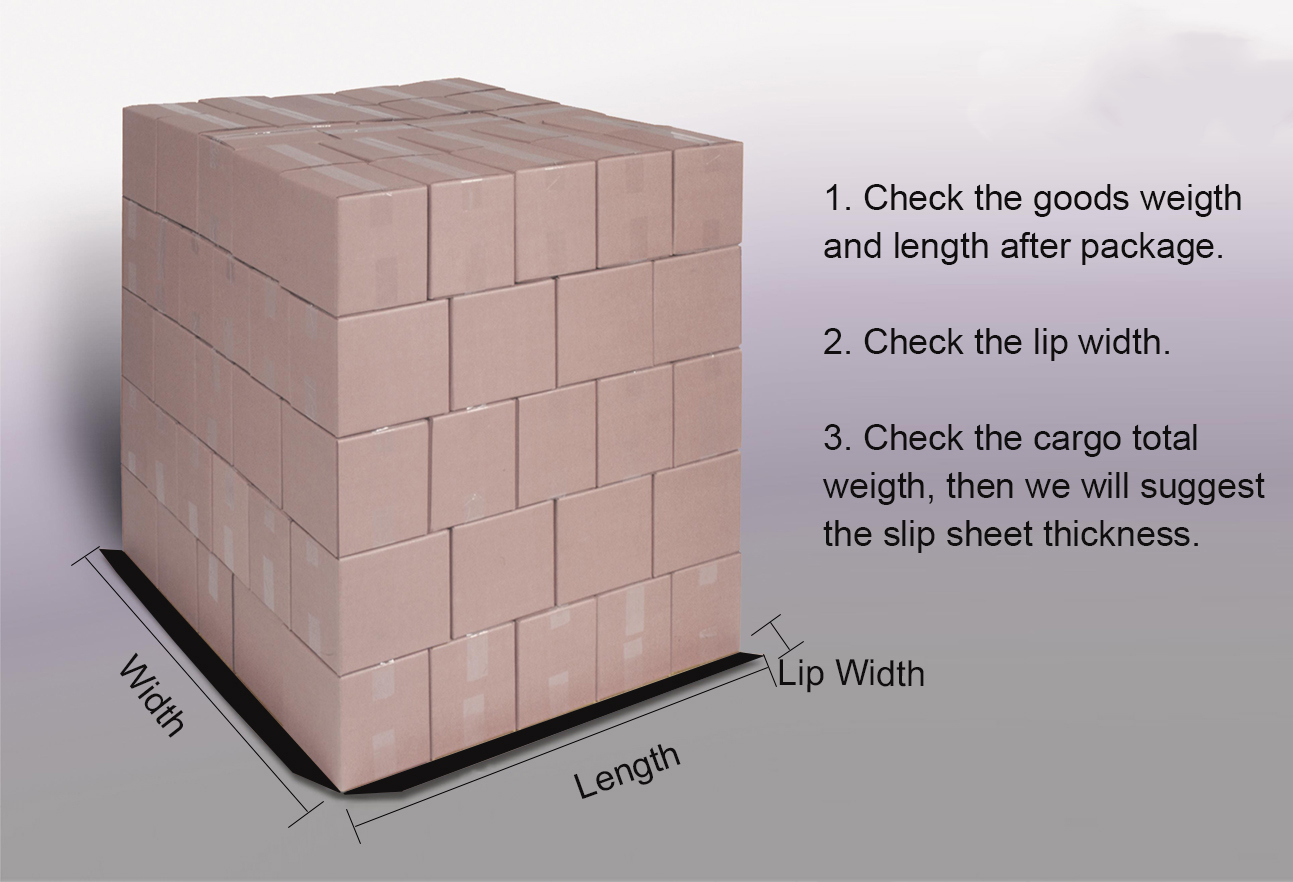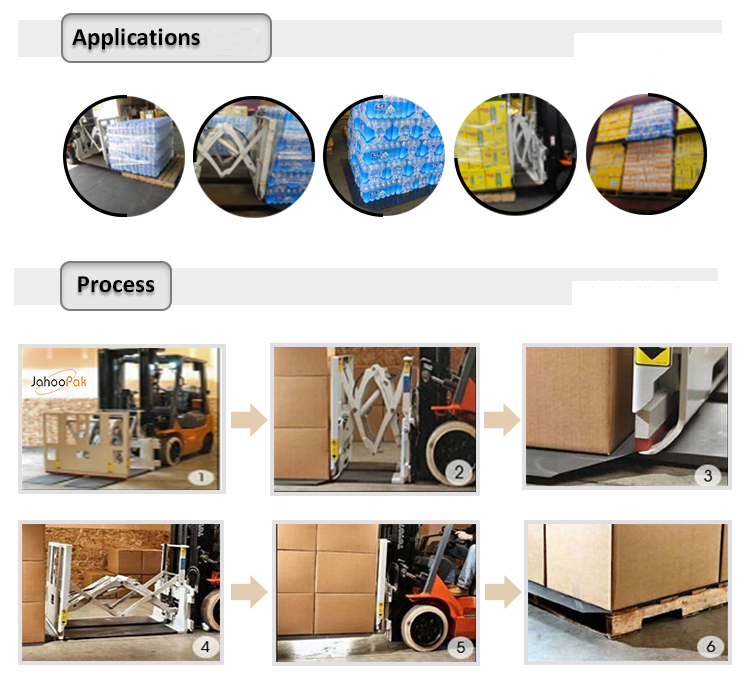JahooPak plastic slip sheet is a thin, flat sheet made from durable plastic (often HDPE or UHMW) used in material handling and logistics as an alternative to traditional wooden or cardboard pallets. Here’s a breakdown of its features and uses:
Key Features:
- Material: High-density polyethylene (HDPE) or ultra-high-molecular-weight polyethylene (UHMW) for strength and smooth gliding.
- Thickness: Typically 0.030” to 0.125” thick, lightweight yet sturdy.
- Size: Standard sizes mimic pallet dimensions (e.g., 48″ x 40″).
- Surface: Low-friction coating allows easy insertion/removal by forklifts with push-pull attachments.
- Reusable & Recyclable: More eco-friendly than single-use wood pallets.
Advantages:
- Space-Saving: Thinner than pallets, saving storage and shipping space.
- Cost-Efficient: Reduces pallet weight, lowering freight costs.
- Hygienic: Non-porous, easy to clean (ideal for food/pharma industries).
- Durable: Resists moisture, chemicals, and pests (unlike wood).
- Ergonomic: Reduces manual handling risks compared to heavier pallets.
Common Uses:
- Warehousing: Unit load stabilization for stacked goods.
- Shipping: Replaces pallets in containers (more cargo fits per trip).
- Retail/DC: Used in automated systems for smooth transport.
- Export Packaging: Avoids ISPM-15 wood treatment regulations.
Disadvantages:
- Requires special forklift attachments (push-pull or slider mechanisms).
- Less rigid than wood pallets; not ideal for uneven loads.
- Higher upfront cost than disposable options (but long-term savings).
Alternatives Comparison:
- Wood Pallets: Cheaper but bulkier, prone to damage.
- Cardboard Slipsheets: Ultra-lightweight but single-use.
- Plastic Pallets: More durable but heavier and costlier.
Best For:
Businesses prioritizing shipping efficiency, cleanliness, and cost savings over long hauls or automated systems.











